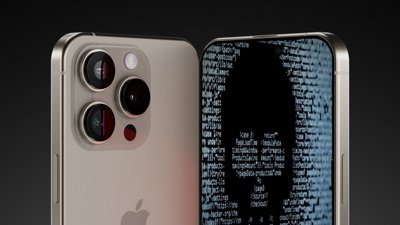Apple resists request to unseal Jobs deposition in Universal suit
Rob Zombie, the estate of Rick James and other musicians have filed a discovery request to unseal and use documents from a separate case against UMG subsidiary Aftermath Records which contains testimony regarding iTunes and proceeds from digital music sales, reports The Hollywood Reporter.
Apple is strongly opposed to revealing the documents as among the evidence are depositions from Apple co-founder Steve Jobs and Senior Vice President Eddy Cue regarding highly sensitive trade secrets. The documents are such that the judge ordered almost everyone out of the courtroom when they were first presented in the Aftermath case.
F.B.T. Productions, the producers who are suing rapper Eminem's Aftermath label, recently won a favorable ruling when the Ninth Circuit Court of Appeals said the plaintiffs were correct in asserting that a contract between the parties should consider digital music as "licenses" rather than "sales." The case is set to go to trial to determine the worth of said licenses.
Due to the success seen by F.B.T., the plaintiffs in the class action suit against UMG want to leverage the same evidence and, acting on direction of the presiding judge, have filed a motion to modify the protective order shielding the documents. Currently, the F.B.T. suit has sealed almost all information pertaining to the case as it moves toward trial.
Apple subsequently filed an objection to the motion, claiming that the depositions along with other documents relating to its business dealings with record labels are "highly confidential and proprietary trade secrets." The company claims that if the documents were released, it would suffer competitive damages.
To bolster its point, Apple noted that when the depositions were both taken and played before the jury in the F.B.T. case, the judge closed the courtroom and ordered many people out including UMG employees. The following transcripts were also sealed.
The iPod maker asserts that the plaintiffs in the class action suit have yet to prove why the sealed documents are relevant to that case. Apple goes further, saying that the musicians' lawyers were wrong in bringing such a "broad but indiscriminate" motion to modify the protective order.
 AppleInsider Staff
AppleInsider Staff











 Malcolm Owen
Malcolm Owen
 Andrew Orr
Andrew Orr
 Christine McKee
Christine McKee
 William Gallagher
William Gallagher

 Marko Zivkovic
Marko Zivkovic









